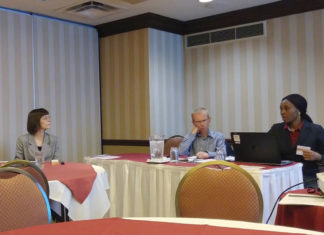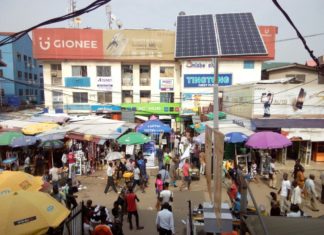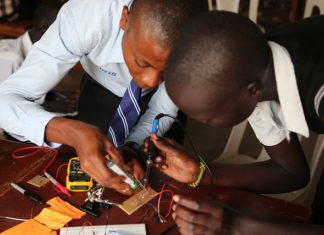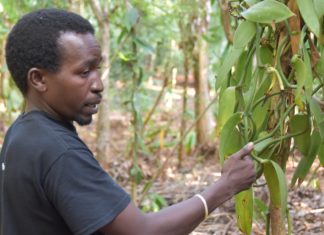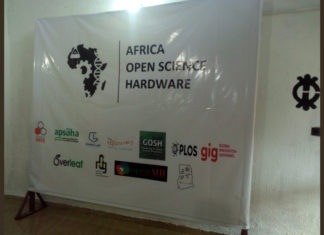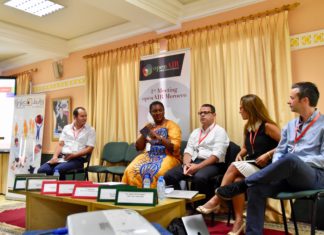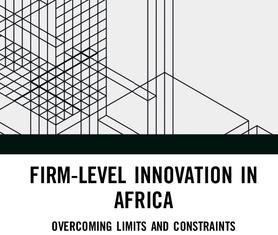Invention in Africa: Open AIR shares its Model at CAAS 2019
By Uchenna Felicia Ugwu
Africa is becoming recognized as an important hub of
informal innovation, which should not be excluded or ignored by formal systems
for IP...
Open Call for Case Studies
Open AIR is calling for African case studies that shed light on the following two overarching research questions:
How can open collaborative innovation help businesses scale up and seize the new opportunities of a global knowledge economy?
Which knowledge governance systems will best ensure that the social and economic benefits of innovation are shared inclusively across society as a whole?
Beyond the Poster Boy of the Maker Movement
Some people tour Europe’s finest vineyards others tour Australia’s sweetest surf spots—I tour South Africa’s pioneer makerspaces; part of the growing global maker movement. The movement is a culmination of people becoming “makers” (someone who uses their personal abilities to create anything from mechanical or electrical to visual or musical) and spaces becoming makerspaces (an interdisciplinary area stimulating people to create by providing resources and idea sharing).
Chapitre 2: Cadres d’analyse de l’innovation africaine : l’entrepreneuriat, l’économie informelle...
Jeremy de Beer, Izabella Sowa et Kristen HolmanDate de publication: septembre 2017Télécharger: Chapitre 2: Cadres d’analyse de l’innovation africaine : l’entrepreneuriat, l’économie informelle et...
Understanding the Dynamics of Knowledge Transfer in Nigeria’s Otigba Hardware Cluster
So what is the Otigba Computer Village? Oyelaran-Oyeyinka in 2006 described it as the biggest ICT hub of West Africa – perhaps the biggest ICT market in all of Africa – because of the size and the volume of business activities carried out on a daily basis within the cluster. The research I have been conducting looks at the knowledge dynamics at play in the informal ICT businesses in the cluster, with a view to understanding how these dynamics drive informal enterprises’ innovation and scaling-up. While other studies of the cluster have evaluated the size and capacity of the cluster, the evolution of the cluster, mode of operation, performance, sustainability and constraints, there are no studies looking at how the local businesses identify new and useful knowledge. With over 5000 businesses in the cluster, there is bound to be knowledge exchange either through spillover or conscious transfer. How is this happening?
Highlighting Inclusion of Marginalized Voices at International Conferences: A NERG’s experience
By Nicole Tumaine
Over the past four months, I have had the privilege of attending three international conferences as a panelist thanks to the generous...
How DIY Biology can Improve Access to Digital Agricultural Technologies
By Vipal Jain
Digital agricultural research is transforming the way crops are developed. New tools can speed up the ability to produce crops with higher...
Making at AFRICAOSH Summit 2018
By Outlwile Maselwanyane
The first gathering for Africa Open Science & Hardware (AfricaOSH) was hosted by Kumasi Hive innovation hub, Kumasi, Ghana, on April 13-15...
Open AIR Expansion into Morocco
By Sara Yassine
Over the past six months, the Research Laboratory Entrepreneurship and Management of Organizations (LABO-EMO) and Open AIR have been looking at ways...
Firm-Level Innovation in Africa: Overcoming Limits and Constraints
Edited by: Oluseye Jegede: The literature on innovation in Africa is rapidly expanding, and a recurring thread in the emergent literature is the pervasiveness of systemic weaknesses that inhibit the innovation process. Despite these, firms are able to innovate in Africa.

